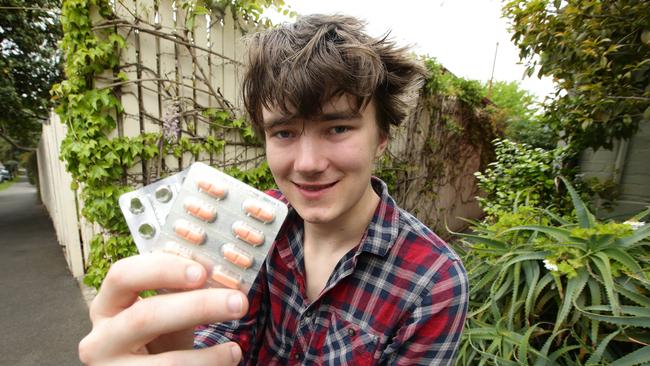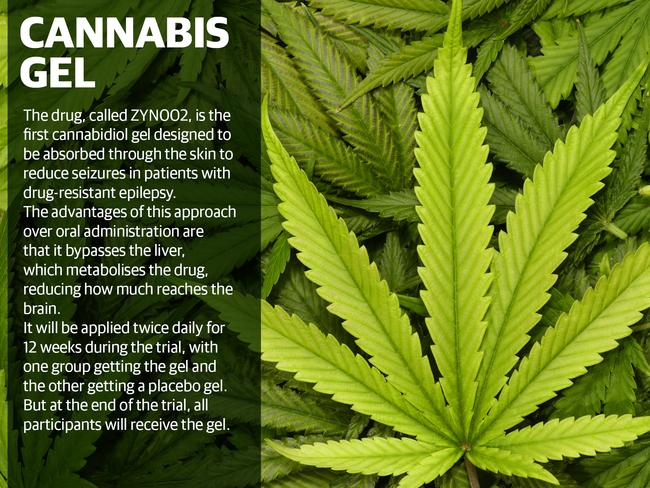A new medical marijuana gel could reduce uncontrolled seizures for adults with epilepsy
A MEDICAL marijuana gel will be rubbed onto the arms of adults with epilepsy in a world-first trial that could provide desperately needed scientific evidence to anecdotal success stories.

VIC News
Don't miss out on the headlines from VIC News. Followed categories will be added to My News.
A CANNABIS gel will be rubbed onto the arms of adults with epilepsy in a world-first trial led by Melbourne doctors to reduce uncontrolled seizures.
New treatments are desperately needed for the 30 per cent of people with a drug-resistant form of the neurological condition who live with the constant worry of having a seizure in public that results in an accident or even death.
Royal Melbourne Hospital neurologist Professor Terry O’Brien, who is leading the trial, said the gel, which does not contain the hallucinogenic ingredient found in the plant, was expected to be more effective than taking the drug orally.
“Cannabidiol (the non-psychoactive component of the cannabis) has a high first metabolism in the liver,” Prof O’Brien said.
“It means we don’t know exactly how much of the drug is getting to the brain because much of it is metabolised in the liver and stomach before it even gets there — this is one of the reasons the recreational drug is inhaled — so it’s a great advantage to be able to bypass that problem.”
Prof O’Brien is the chair of the Australian Epilepsy Clinical Trials Network, the group of epilepsy centres that will run the gel trial on 180 patients with drug-resistant epilepsy, across 14 sites in Australia and New Zealand.
“A lot of people with uncontrolled epilepsy are very keen to try cannabidiol and this is the first double-blind randomised control trial that has been available to adults in Australia and internationally,” he said.
Some epilepsy patients have been “self-medicating” with recreational cannabis, but the difficulty is that it’s not known what other ingredients the drug contains, and the effect of the mind-altering component, THC (tetrahydrocannabinol), on the brain is unclear.
The Epilepsy Foundation has been advocating for randomised control trials of cannabis-derived drugs for many years to test their efficacy.

CEO Graeme Shears said there was a need to understand if the reported benefits were a placebo effect because there was also some evidence to show that THC in non-pharmaceutically produced cannabis could be a seizure trigger.
“A cannabis product is just like any other medication, except that it is derived from a natural source, so we need to do the same randomised control trials to get evidence of its impact,” he said.
A phase-one trial in humans has already shown that the drug can be absorbed through the skin, but this trial, sponsored by its maker, Zynerba Pharmaceutical, will test the gel’s effectiveness in seizure reduction.
Despite taking three different medications a day, Melbourne teenager Max Dalton still gets seizures every 3-4 days and hopes the gel will reduce their frequency.
Max, 19, knows a seizure is imminent when he is overcome by a feeling of extreme nausea. “There is no convulsing, but I can’t talk during them and go into a strange autopilot and I don’t remember them afterwards.”
To take part, VISIT CLINICALTRIAL.MEDISCREENER.COM/EPILEPSY


